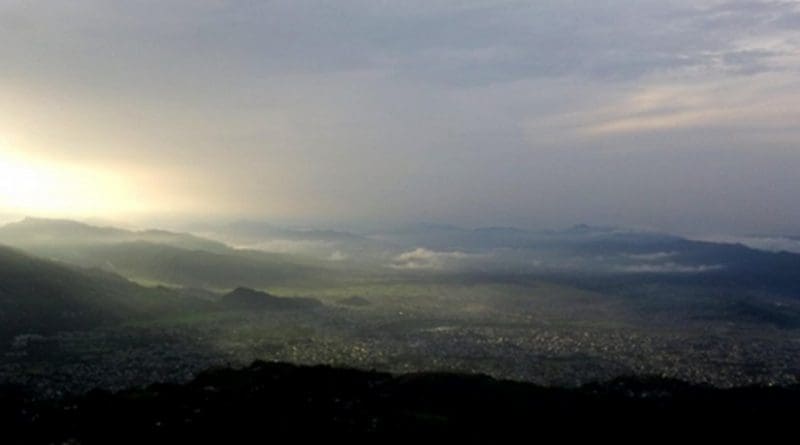Nepal Political Crisis: President Yadav Takes The Initiative – Analysis
By SAAG
By Dr. S. Chandrasekharan.
Having realised that the political parties are incapable of coming to an understanding on the future course of action despite unending meetings, President Yadav appears to have taken the initiative to end the current political impasse. He has called for a crucial meeting today at 9.AM at his residence of the four major parties, the UCPN (M), the Nepali Congress, the UML and the Madhesi forum as well as over 20 other parties represented in the dissolved assembly to discuss the future course of action.
Earlier in the meeting of 30th September, he expressed his dissatisfaction over their failure of the political leaders to strike a deal on the future course of action and remarked that the “country could no longer be held hostage.” He also added that if the parties cannot strike an agreement they should tell him how and when he should make the move to put an end to the current uncertainty. He had pointed out earlier that the government cannot be run on a care taker basis for long. The government cannot be run by ordinances alone.
The political parties gave themselves a dead line of October 16th and promised to come to some definite understanding, but nothing came out of the meetings. The parties could not even come to an agreement whether the future course of action should be through elections or through the resurrection of the “dead” constituent assembly. While Deuba of the Nepali Congress, Ex. Speaker Nembang and even Vice President Jha were strongly in favour of revival of the CA, all others particularly Dahal of the UCPN (M) were swinging from revival to fresh elections almost on a daily basis.
This controversy of revival vs. fresh elections was finally put to rest when President Yadav on 16th October made it clear that the dissolved parliament cannot be resurrected at any cost!
The same day he also called the Prime minister to clear any misunderstanding the PM may have had with President’s utterances. PM Bhattarai had also forgotten that he is only a caretaker Prime Minister and cannot make major decisions in the absence of a regular parliament. Bhattarai’s remarks that President should restrict himself only to ceremonial functions were ill advised and positively offensive little realising that the President is the only constitutional head left in the country to take decisions. Little noticed but equally offensive was the position of the ruling party UCPN (M) that they cannot accept a Nepali Congress leader to lead the elections as that would result in having Nepali Congress representatives both as Prime Minister and the President! This was in bad taste as at no time has the President shown any special consideration for the Nepali Congress – the party where he had spent all his political life earlier.
Even if it is decided to go for fresh elections, there are many issues that need to be solved. The first is the leadership of the government. It should be apparent that the Maoists will not let go the position of the Prime ministership until the elections are completed. It is also equally clear that the next biggest party- the Nepali Congress will not allow fresh elections unless it is allowed to lead the government. Perhaps a compromise could be found in having in some neutral person like a retired supreme court judge or a well-respected bureaucrat or public person to head the government. This suggestion has already come from one of the current ministers of the coalition- Rajendra Mahato.
There are other issues too on fresh elections like amendment to the interim constitution, amendment to electoral laws, number of seats to the assembly, date, electoral system ( first to post or proportionate or a mix of both) and the duration. At any rate, elections cannot be held before April next year.
At last and finally, the integration process is over and this is a major development and an achievement. All the 28 PLA camps have been closed. In all 1388 combatants have been accepted at the recruit level and another 75 at the officer’s level. All of them have been given 53 days leave and then to report for training on 21st November. It looks that it may bot be necessary now to have a special directorate to accommodate the PLA combatants. Credit for completing the integration goes to the Maoists and particularly to Dahal and PM Bhattarai, adhering for once to their promise.

